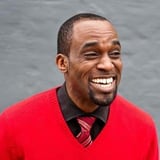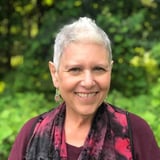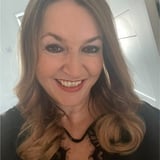Summary
In this talk, Boon will share learnings from understanding systems thinking at a deeper level, and how this has shaped and improved his approaches to large, messy problem spaces as an senior individual contributor working on product / service design and strategy in the enterprise. Boon's perspectives on systems draw from a mix of systems perspectives, which include Checkland's soft-systems methodology, Capra's systems view of life, and Ricigliano's Systems Practice approaches. He'll also share some of the practicalities and challenges of learning and applying systems thinking (which hasn't been simple), while having to deliver on UX outcomes at the same time.
Key Insights
-
•
Enterprise UX involves designing not just products but collective organizational change among stakeholders.
-
•
Shifting from user-centered to organizational-value-centered design reveals broader systemic interdependencies.
-
•
Polarity mapping helps balance competing but interdependent priorities instead of choosing one over the other.
-
•
The Backcasting approach, including dystopian futures, enriches understanding of possible long-term changes.
-
•
Most systems thinking tools are used selectively to avoid alienating stakeholders unfamiliar with complex diagrams.
-
•
Renaming services with verbs improves user clarity and situational awareness across complex workflows.
-
•
Creating design qualities in the voice of users acts as a self-perpetuating system feedback loop.
-
•
Sharing design artifacts openly across teams promotes cross-departmental collaboration and mutual benefit.
-
•
A daily Slack feed of user research comments fosters ongoing organizational awareness and system muscle.
-
•
Cultivating trustful relationships is foundational since complex systems work ultimately depends on people.
Notable Quotes
"Enterprise UX is really hard because, in addition to designing for products, we also design for our own change and the change our colleagues navigate."
"Systems thinking for enterprise UX is like doing research and design on ourselves, our colleagues, and our work."
"Polarity mapping forces you to balance two things that seem like opposites but are actually interdependent."
"Good services are verbs, bad services are nouns – using verbs helps users know where they are in the workflow."
"Change doesn’t happen because we made a product; change happens through how people respond and behave."
"We need to work on relationships with stakeholders because that’s how things get done in complex systems."
"Using systems tools is only about 5% of my day-to-day work; I handpick them to meaningfully engage stakeholders."
"Behavior begets behavior – by modeling sharing and documentation, others start adopting those habits."
"Designing for equity means bringing voices of those not in the room back into the system we design."
"You have to put yourself in stakeholders’ shoes and understand their domain to have meaningful conversations."
Or choose a question:
















More Videos

"In many cases, we don’t even know what the work is in design ops."
Kristin Skinner Kamdyn Moore8 Types of Measures in Design Operations
April 16, 2020

"The future of civic design will be localized, designed for and by communities rather than dictated top-down."
Bria Alexander Ariel Kennan Charlotte Lee Sarah Brooks Emily Lessard Gordon Ross Joanne DongReflect and Chart Forward
December 10, 2021

"Affordable, powerful AI and data-driven design have become shockingly practical for enterprise settings."
Louis RosenfeldWelcome / Housekeeping
June 6, 2023

"Independence did not just mean performing duties without assistance. It meant a radical self-determination."
Sha HwangThe First Fifty Years of Civic Design
November 16, 2022

"We have to go slow to go fast."
Daniel OrbachZero to One: Co-Creating Operating Models with your Team
September 23, 2024

"Why don’t we do what we do for users but apply it to our own careers? Absolutely nutty, right? So we did."
Ian SwinsonDesigning and Driving UX Careers
June 8, 2016

"Weave in great user stories that exemplify your key points to maximize engagement."
Bruce GillespieLearning from journalism: Balancing impactful communication with compassionate storytelling
March 13, 2025

"We have never played together before and never rehearsed, yet we pulled off a great rendition spontaneously."
Jim KalbachJazz Improvisation as a Model for Team Collaboration
November 6, 2017

"Gestures are a window to the mind."
Dane DeSutter Stephanie ScopelitisWhat co-speech gestures reveal about users’ thinking during interviews
June 30, 2023
Latest Books All books
Dig deeper with the Rosenbot
What are some emerging adjacent roles in UX research that professionals can take initiative in?
How can service design facilitate collaboration and alignment between public and private sector organizations?
How does shifting organizational language from AI as a tool to AI as a way of working reflect cultural maturity?
















